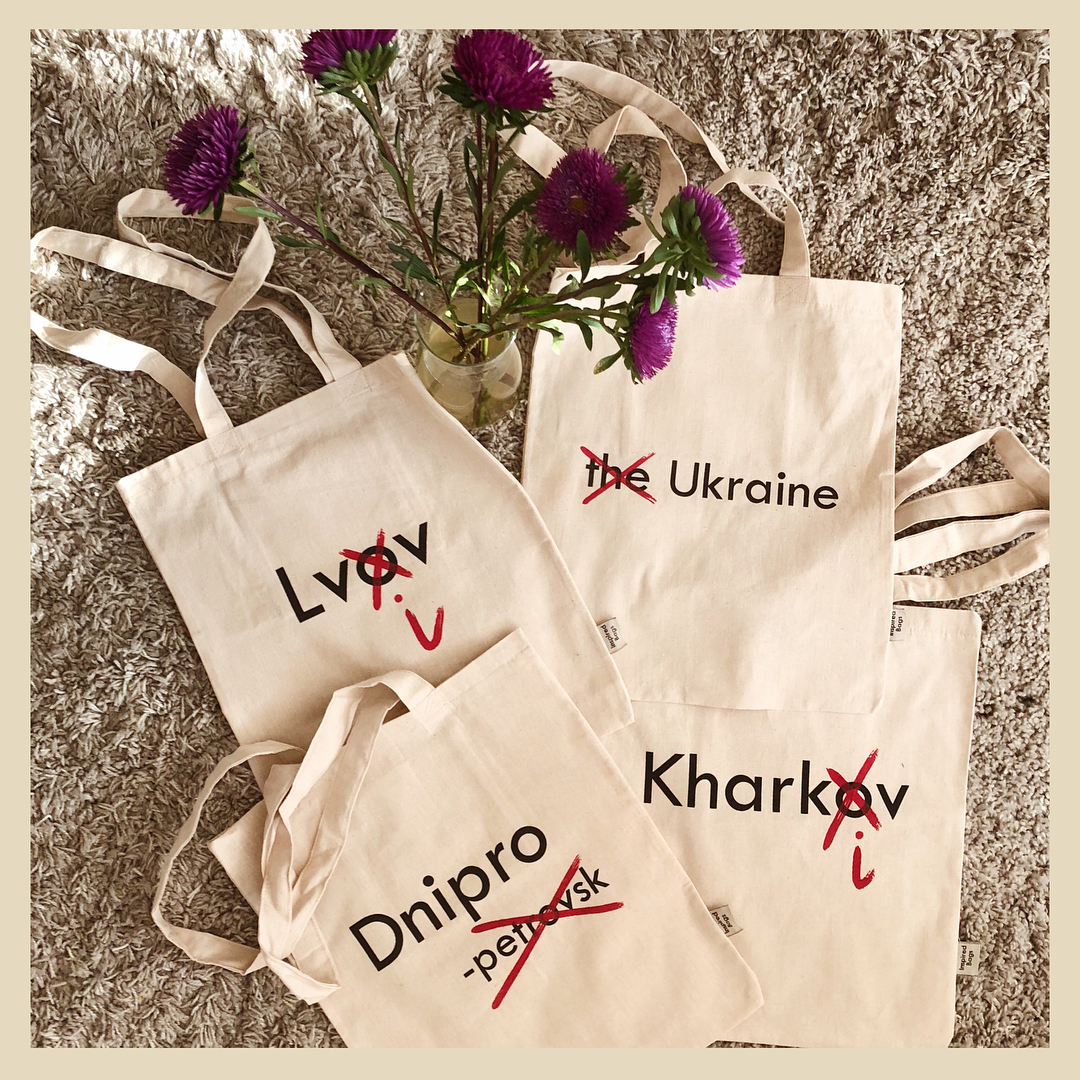THINGS YOU NEED TO KNOW ABOUT LANGUAGES IN UKRAINE
2018-12-04 14:42:32
What language do they speak in Ukraine? What is surzhyk? Russian language in Ukraine. Is Russian despised in Ukraine? Is saying “The Ukraine” correct? Which version is accurate: Kiev or Kyiv? Which words should I learn before coming to Ukraine?
How to say hello, thank you and good morning in ukrainian?
Learn basic ukrainian words and phrases below
These are the most frequently asked questions about languages in Ukraine. Well, in this article, we’ve attempted to answer them all. Below is the list of top facts you need to know about languages in Ukraine and even more. Let’s get to it!
What Language Do They Speak in Ukraine?
First things first, what language do they speak in Ukraine? As far as our Constitution goes, Ukrainian is the official language of the country. Russian, in its turn, serves as the native tongue for the minority of the population (29,6%). During the post-USSR era, the already independent Ukraine allowed mass media both in Ukrainian and Russian. That’s why all Ukrainians are bilingual. So to answer this question, in Ukraine, we speak both the official Ukrainian and Russian.
The thing is, Ukraine has a long and complicated history. Because the nation has been under the rule of the USSR for quite long, the parts of the country that are located closer to Russia still speak Russian. That would be the East of the country, where Donbas and Luhansk regions are located. In the meantime, the Western side of Ukraine is rather pro-Ukrainian. In fact, the more you approach the West - the more Ukrainian you will hear, and vice versa. To find out more, follow this link.
What is Surzhyk?
Another important point to mention here is the so-called “Surzhyk”. It is a mixture Ukrainian and Russian. Basically, people just try to combine the two languages without any grammatical rules, creating a total, well, mess. It is interesting to know that Ukrainian-Russian surzhyk is very unique. For instance, there is no German-English surzhyk, even though these languages are somewhat similar and often intersect. More about surzhyk here.
Dialects in Ukraine
One more thing you should be prepared for - dialects. There are three main groups of dialects in Ukraine. We could start listing them by regions, but all you really need to know is: if you go to the West of Ukraine, you will notice that the language in different there. Let’s suppose you’ve memorized some good Ukrainian words. Please don’t get frustrated if you can’t recognize them in the Carpathians, for example. The language gets so peculiar there that even a native won’t understand a word.
Ps. To read more about the dialects in Ukraine, follow the link.
Top 10 Ukrainian Words
Prior to visiting Ukraine, you may worry that you won’t feel like a local because you can’t speak the language. However, don’t make hasty conclusions because you can easily memorize the main Ukrainian words and simple phrases. Here is the list of top 10 Ukrainian words that will come in handy.
- Привіт - /pryvIt/ - “Hi”
This word is rather informal: people use it to greet friends, family, or someone you’re about to become acquainted with in a casual situation.
- Так - /tAk/ - “Yes”
“Tak” is a purely Ukrainian word. A more colloquial form is “Da”, derived from the Russian language.
- Ні - /nI/ - “No”
Likewise, this is an entirely Ukrainian way of saying “No”. When a Ukrainian asks you whether or not you speak his language, be sure to say “Nі”. Another option is “Nye”(Нє) - the surzhyk version.
- Бувай - /buvAi/ - “Bye-bye”
This is a farewell word used in informal situations. Other options include “Pa-pa” or “Pa-ka”, - also very popular casual words.
- Дякую - /dyAkuyu/ - “Thank you”
When you want to express gratitude, say “Dyakuyu” with an emphasis on the first syllable. If you are super grateful, say “Duzhe dyakuyu” (“Thank you very much”). Don’t be afraid to go over the top with this word, remember: Ukrainians like being thanked :)
- Будь ласка - /bud’ lAska/ - “Please” OR “You are welcome”
This is a word (even though it consists of two parts) has more than one meaning.
- If you hear “Dyakuyu” (Thank you) from someone, confidently say “Bud’ laska”(You’re welcome) in response.
- If you want to ask for directions, don’t forget to add “Bud’ laska” (Please) for politeness.
- Смачного - /smachnOho/ - “Enjoy your meal” or “Bon appetit”
Before starting to eat, don’t forget to say to your friends “Smachnoho”, - the meal will taste even better.
- Скільки - /skIl’ky/ - “How much...?”
When buying souvenirs for your grandma, ask a seller this question: e.g. “Skil’ky magnit?” (“How much for the magnet?”).
- Де - /dE/ - “Where…?”
If you ever get lost, approach a stranger with “De” and add where you need to get. For instance, “De Maidan?”(Where is Maidan Nezalezhnosti?), “De park?”(Where is the park?).
- . Вибачте - /vYbachte/ - “I’m sorry” OR “Excuse me”
- You stepped on someone’s foot in the subway? No worries, just use this word and any Ukrainian will be too charmed with your accent to stay mad.
- Looking for directions? Start your sentence with “Vybachte, de…?” and end with a destination point: e.g. “Vybachte, de metro?”
Here, you are much closer to sounding like a local. Now let’s make sure you know all the simple phrases. Top 5 most used phrases in Ukrainian you need to know list is down below.
TOP 5 MOST USED UKRAINIAN PHRASES
- Добрий день - /dObryi dEn’/ - “Hello” (Literally: “Good day”).
“Dobryi den’” is a formal way of greeting people. Unlike “Pryvit”, you should use it mainly with the people you don’t know or highly respect.
- Як справи? - /yAk sprAvy?/ - “How are you?”
This phrase usually comes after Ukrainian “Hello” or “Hi”. When you’re not sure how to begin a conversation, kickstart it with “Yak spravy?”. It works both for formal and informal situations.
- Дуже добре - /dUzhe dObre/ - “Very good”
This is a nice answer to the above-mentioned phrase. So, when someone asks you “Yak spravy?”, don’t hesitate to say either “dobre” (“good”) or “duzhe dobre” (“very good”). We know that while in Ukraine, things will always be “duzhe dobre” :)
- Ви говорите англійською? - /vY hovOryte anhlIys’koyu?/ - “Do you speak English?”
When you run out of Ukrainian words, go with this phrase. You’ll be surprised how many Ukrainians speak English.
- До побачення - /do pobAchen’:a/ - “Good bye”
Good times end quickly. When it’s high time to leave, don’t forget to politely say goodbye using this phrase. It’s mostly used for formal meetings.
“You” and “You” - Which One to Choose?
If you’re a mannerly and diplomatic person, you might want to know that in Ukrainian, the word “You” has several translations. The first one is “Ty” (Ти) - it is used in casual circumstances. For example, when talking to a friend: “De ty?” (Where are you?). Nevertheless, if you are in a formal situation (say, at work) and you want to ask your colleague where he is, such a phrase would be completely inappropriate. Saying “ty” towards people you barely know or don’t know is considered rude in Ukraine. Instead, you should resort to the word “Vy” (Ви), as in “De vy?”. Such a rule is treated as the norm of etiquette both in Ukraine and other European countries.
Ukraine or THE Ukraine?
On the English-speaking news, you may often hear “The Ukraine”. However, this is the type of mistake which deeply insults any Ukrainian. The correct way is to say “Ukraine” without any articles. The matter is that Ukraine has come a long way to gain its independence but when someone adds a definite article to the name of the country, it means they refer to it as a part of another nation. Therefore, it is totally incorrect to say “the Ukraine”. If you’re interested in the historical roots of the issue, follow the link.
About the Cities
Kiev or Kyiv?
You see, “Kiev” is the Russian spelling of the Ukrainian capital. The appropriate way to say it is “Kyiv” - it’s grammatically correct according to Ukrainian norms. The same thing with Odessa and Odesa, Lvov and Lviv, Kharkov and Kharkiv - only the second variants are correct. Remember, for you, this might be just the matter of a few letters while for Ukrainians, it is the sign of respect.

Ukrainian brand "Inspired Bags" by Yuliia Pryimak
The New Names of Ukrainian Cities
Many Ukrainian towns and cities have recently undergone some changes when it comes to naming. The government issued a new order which announces the replacement of old names with the new ones. For instance, the modern Kropyvnyts’kiy used to be called Kirovohrad. Likewise, Dnipropetrovs’k became Dnipro, Chornomors’k was changed to Illichivs'k, and the former Podils’k became Kotovs’k. The substitution took place in 2016, so some of the maps may still contain the old variants of the names. Thus, guests of the country often get confused. We don’t want you to be one of them, so we suggest to double-check the name of a particular city if you have any doubts.
Is Russian Despised in Ukraine?
Rumor has it, some Ukrainian residents don’t like speaking Russian, preferring the official language only. Well, that is partially true, but only in rare cases. Even in Lviv, where the concentration of Ukrainian natives is overwhelming, it is absolutely okay to speak Russian. The Ukrainian language is blooming yet Russian is highly tolerated. For instance, in Kyiv, the majority of the population speaks Russian as their native language.
Moreover, Russian happens to be the language for business. It is extremely convenient for companies to present their assortment in Russian, along with Ukrainian and English. Besides, Russian is the most popular Slavic language. This means, especially for new startups, that the customer audience will dramatically expand if using Russian. But even if we talk about restaurants, cafes, or supermarkets, Russian is definitely easier to use as it guarantees more visitors and thus, more income.
Conclusion
So, to summarize, Ukrainian is undoubtedly the official language of the country. It is used in all formal aspects of life. However, Russian is by no means less popular or usable. We, Ukrainians, consider ourselves lucky to be bilingual and speak these two melodic tongues as our native. You know you are a Ukrainian if you can switch between these languages without even noticing it. When in Ukraine, try to practice the languages. Have no doubts, any Ukrainian will be happy to help you :)
Travel with us
Join thousands of travelers, who explored Ukraine with our adventure, cultural or heritage tours since 2011.Trusted by National Geographic, BBCW, Wild Frontiers and others.
Ask us anything



